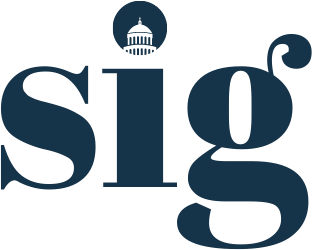Nick Obletz is a sophomore from Oregon.
On Wednesday, October 15, Stanford in Government hosted two distinguished visitors representing polar opposite sides of the intelligence and privacy debate. Stanford students heard a unique mix of opinions about balancing security with privacy.
In the afternoon, Senator Ron Wyden (D-OR), ‘71, chairman of the Senate Finance Committee and member of the Senate Select Committee on Intelligence, spoke about the need to maintain privacy and the need to roll back many of the NSA programs he sees as unnecessary and ineffective breaches of the fundamental freedoms Americans enjoy.
I worked in Sen. Wyden’s office this summer, so I had heard his positions and reasoning on intelligence matters before. The senator treads a fine line when discussing these matters. He aims to maintain a meaningful and productive discussion, but he also must not disclose classified information. For example, Sen. Wyden was aware of the NSA’s Prism and Stellar Wind programs years before Edward Snowden came along, but could not speak publicly about them. Nevertheless, I thought his quote of Ben Franklin, “those who sacrifice liberty for security deserve neither,” was particularly fitting to the discussion. Senator Wyden stressed that an agency’s technological ability to collect different forms of intelligence has no bearing on whether it should follow through with that collection if it violates Americans’ constitutional liberties.
Later on Wednesday evening, SIG co-hosted General Michael Hayden, the former director of the CIA and the NSA. Hayden’s viewpoint was, not surprisingly, in stark contrast with Senator Wyden’s. Hayden stressed the fact that he would use every tool within his authority and the law to protect Americans. Did he make some calls that were tough to live with? “Sure,” he said. But he was clear about the fact that he did not regret establishing any of the programs that incited a national debate on the balance between security and freedom. He also stressed his belief that the U.S. intelligence establishment is the most “translucent” in the world, emphasizing the roles of the Senate and House intelligence oversight committees as well as the Foreign Intelligence Surveillance (FISA) courts in overseeing the programs.
I strongly believe that both Senator Wyden and General Hayden have the best interests of the United States at heart. They are, however, approaching the balance of security and privacy from completely different places in government. Wednesday’s events provided a great opportunity for the Stanford community to hear leading figures on each side of the intelligence debate.




